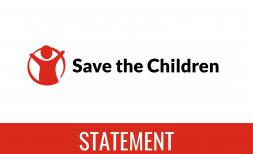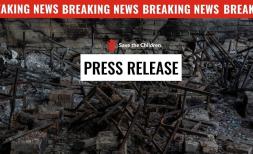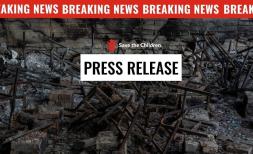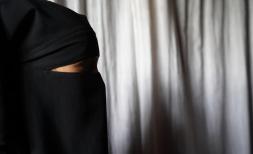105,000 children in Mali displaced by violence, Save the Children warns
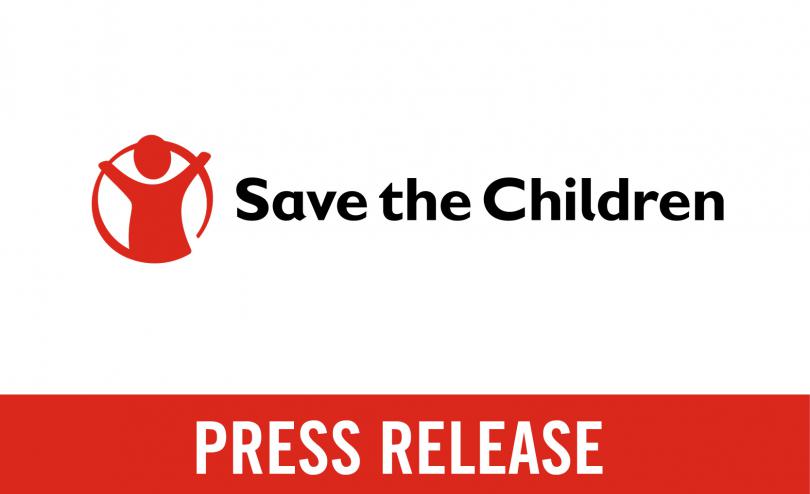
Children in Mali are being hit hardest by the deepening crisis in the north and the centre of the country, Save the Children warned today. Some 90,000 children and their families had to flee their homes in recent months because of a flare up in the violence between communities, and between armed groups and government forces in the border area with Burkina Faso and Niger.
The total number of displaced in Mali is now around 200,000[i], including an estimated 105,000 children. People had to flee conflict zones to cities like Mopti, Segou and to family in capital Bamako, which are considered safer.
Mali continues to face the dire consequences of a worsening security and humanitarian crisis. The number of people in need of humanitarian support rose from 3.2 million in January 2019 to 3.9 million in December 2019, or one fifth of the population. An estimated 300,000 children are currently out of school as 1051 schools[ii] had to close due to ongoing violence and insecurity.
The regions of Menaka, Mopti and Kidal have the highest rates of displaced children out of school.
"With my parents, we have witnessed many attacks. Because of fear, we decided to leave our village. We settled elsewhere and were still forced to leave after a year because of the insecurity.
"I live here with my father, mother and 8 brothers and sisters. After a year without going to school, now I’m back. I wake up every day at 4 a.m. and walk 8 kilometers. It's not at all easy, but I have my father's support. Three of my brothers and sisters, that are 7, 9 and 11 still do not go to school because the school is too far from where we live. I think that one day we will be able to return to our village. It will not be easy to end the war, but nothing is impossible", Fanta*, 17, told Save the Children staff in the Mopti region.
The number of displaced people and the insecurity have put a strain on health and nutrition facilities. Around 190,000 children[iii] under five are estimated to be acutely malnourished by the end of the year. The regions of Mopti and Gao have severe acute malnutrition rates of 9% to 14% respectively[iv].
“It is vital that communities in need can be reached with services like health and schooling” said Amavi Akpamagbo, Save the Children’s country director in Mali. ”But it is a daily challenge. Communities where displaced people find refuge are facing difficult living conditions as they are going above and beyond to help new families that are arriving every day. Yet for aid organisations, it’s increasingly hard to access areas in central and northern Mali, because of the insecurity.”
“Children's access to basic social services like education and health must be a priority. It is incomprehensible that about 300,000 children are deprived of their right to education, that millions are in need of assistance and that over 100,000 children had to flee their homes.
"We cannot jeopardize the future of Mali’s children, but that is exactly what is happening due to the violence and a lack of resources. Of the estimated 324 million dollars needed to meet the highest needs, only 49%[v] is funded. This is a critical time for Mali’s children, we cannot let them down”, concluded Akpamagbo.
In addition to increased funding, Save the Children is calling on the governments to protect civilians during military operations, with a special focus on children. All parties in the conflict must adhere to international rules and standards to reduce the impact of the violence on the children and their families, and to make sure humanitarian organisations have safe access to those in need.
Note to Editors:
In Mali, Save the Children works in the North and Centre of the country through protection, education and health and nutrition programmes. A total of 258,031 people, including 167,453 children benefited in 2019 from the organisation programmes.
- Protecting children: Save the Children offers training to teachers to better support affected children, Child Friendly Spaces are also created to welcome children and help them to recover from their difficult experience.
- Keeping children in school: Save the Children implements activities in Mopti, Bandiagara and Djene to ensure that children have access to school. Specifically, the organisation sets up temporary learning centers, distributes school’s kits and organises remedial courses for children.
- Providing Nutrition to children and women: Since the beginning of the crisis in the North and the Center of Mali, Save the Children is operating in Mopti and Niafunké, reinforcing staff’s capacity in health centers to manage malnutrition. Communities are informed on nutrition and how to tackle the issue.
[i] See:
[ii] See: https://reliefweb.int/sites/reliefweb.int/files/resources/Rapport%20de%20situation%20-%20Mali%20-%206%20d%C3%A9c.%202019%20%281%29.pdf
[iii] See: https://www.humanitarianresponse.info/sites/www.humanitarianresponse.info/files/documents/files/mli_plan_de_reponse_humanitaire_version_revisee_20190820_vf.pdf
[iv] As above

